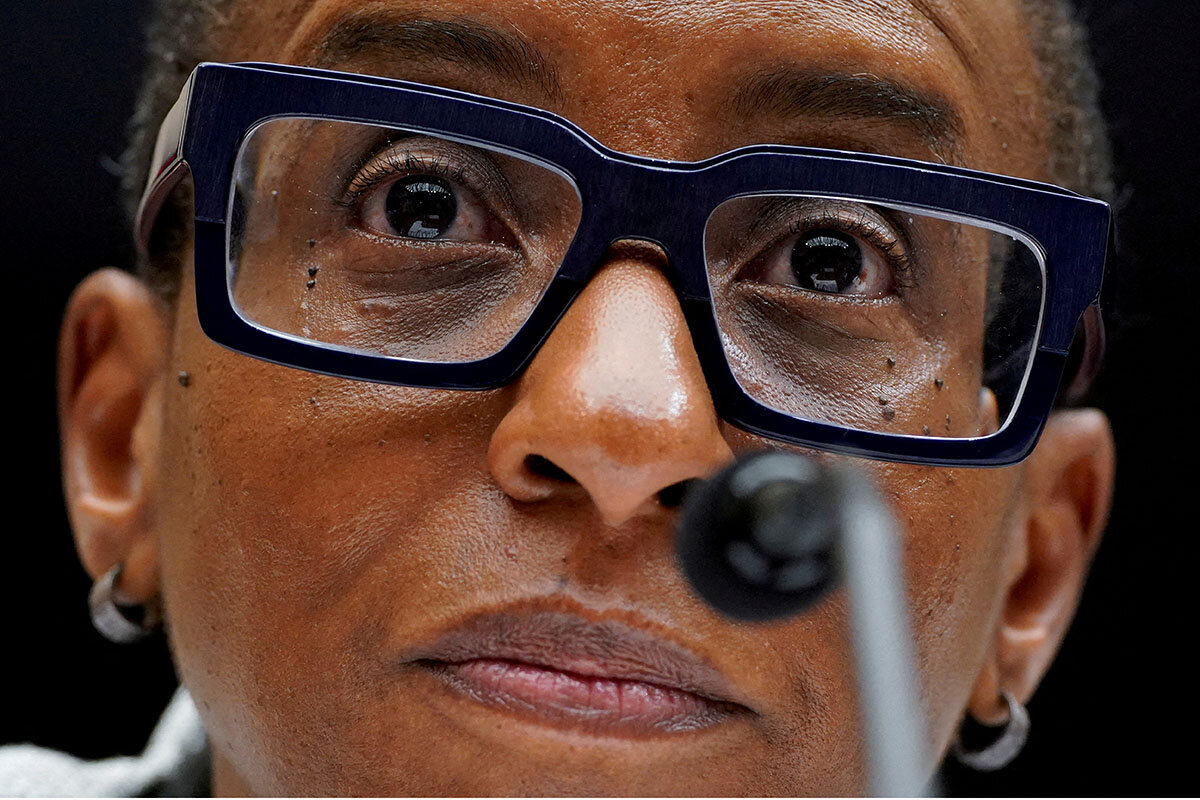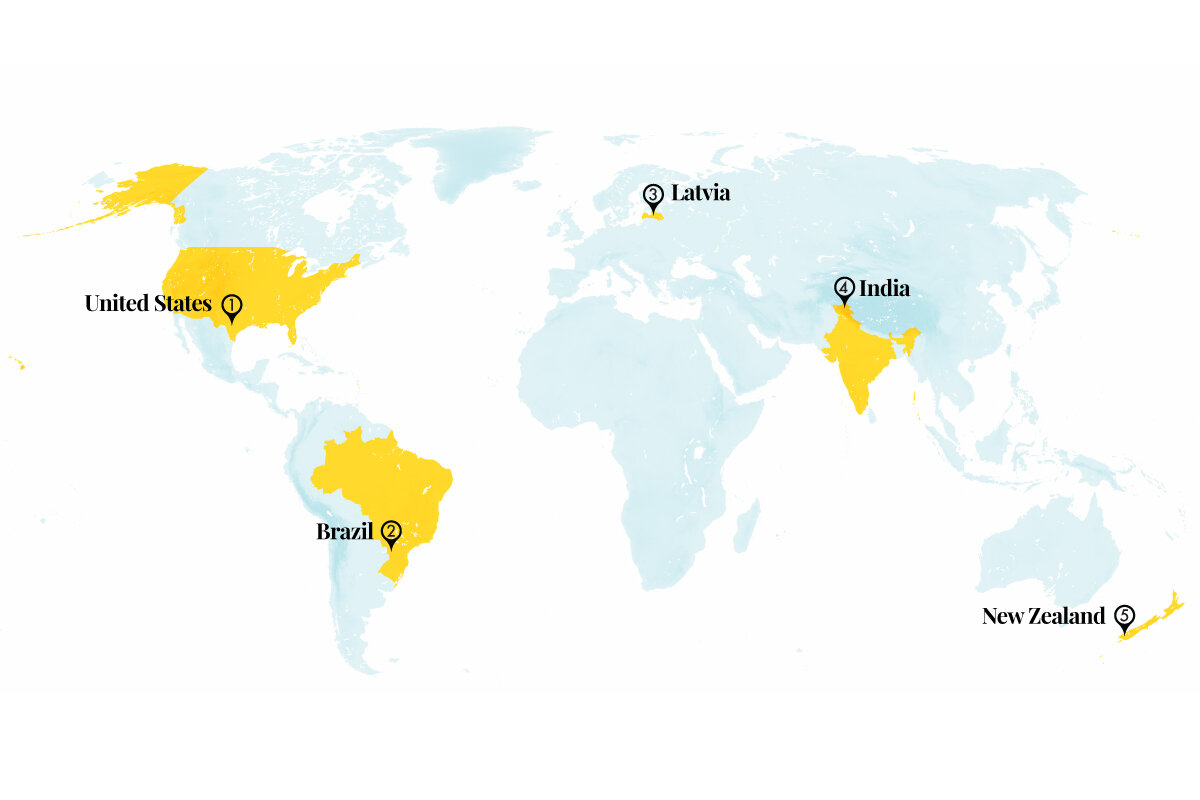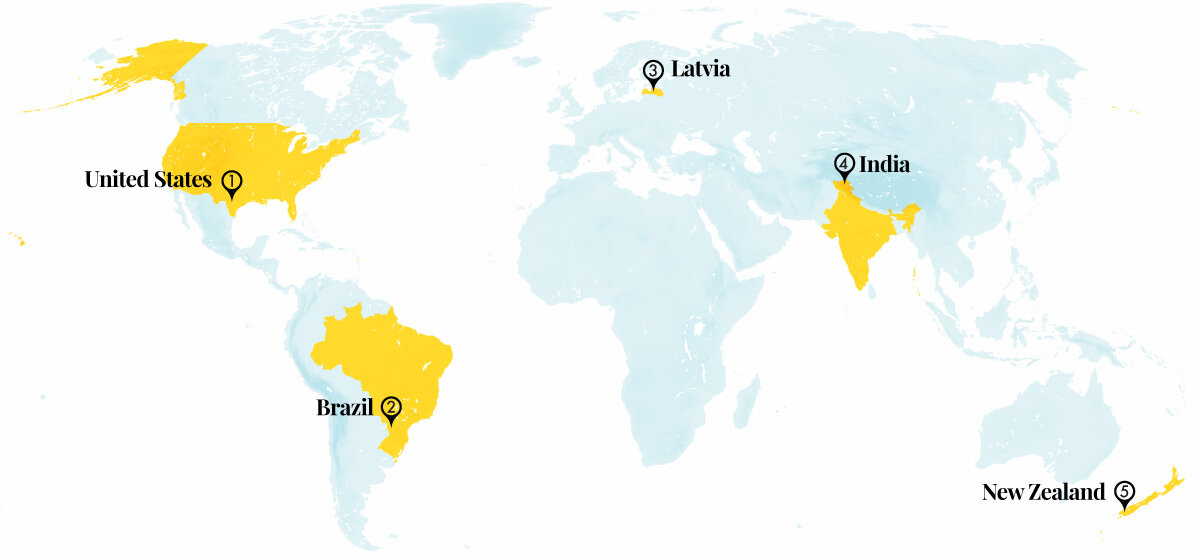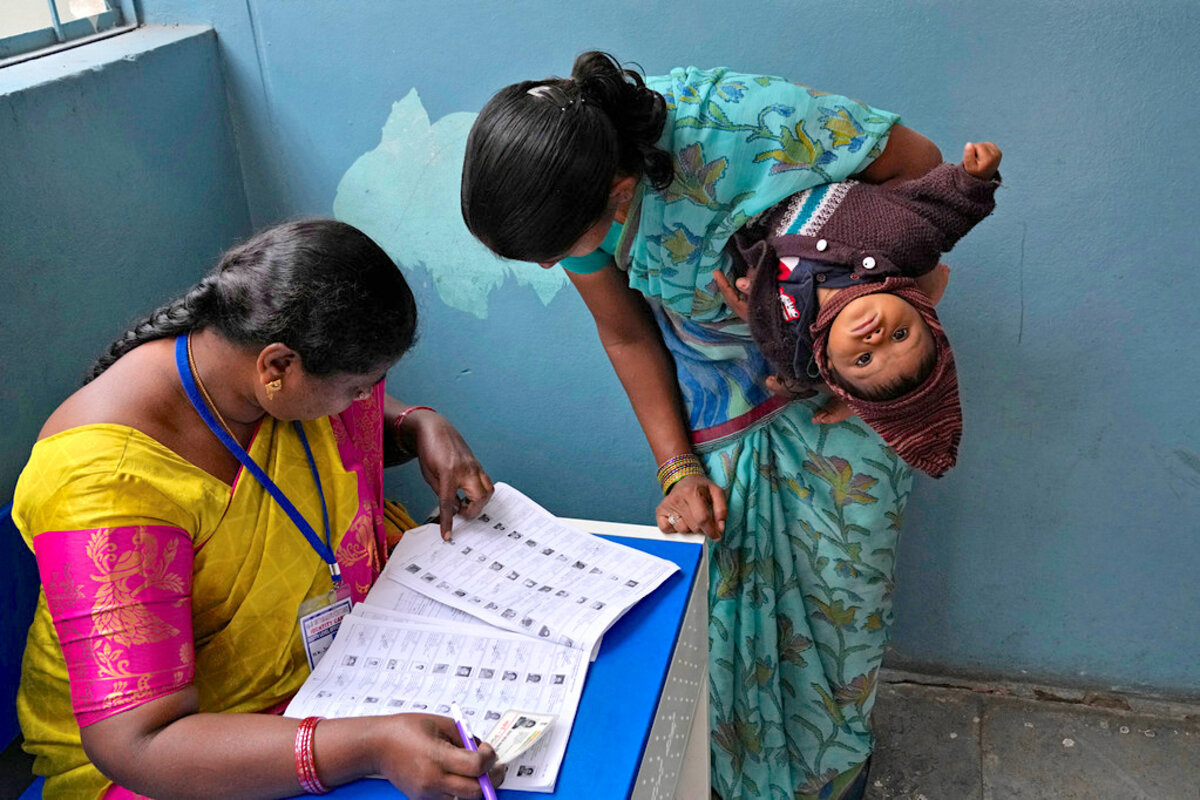The question of whether a second Trump term would result in the collapse of U.S. democracy has gripped pundits and political insiders. What’s bluster and what’s believable? History offers context.

Why is Christian Science in our name?
Our name is about honesty. The Monitor is owned by The Christian Science Church, and we’ve always been transparent about that.
The Church publishes the Monitor because it sees good journalism as vital to progress in the world. Since 1908, we’ve aimed “to injure no man, but to bless all mankind,” as our founder, Mary Baker Eddy, put it.
Here, you’ll find award-winning journalism not driven by commercial influences – a news organization that takes seriously its mission to uplift the world by seeking solutions and finding reasons for credible hope.
Explore values journalism About usMonitor Daily Podcast
- Follow us:
- Apple Podcasts
- Spotify
- RSS Feed
- Download
 Mark Sappenfield
Mark Sappenfield
In many quarters of the media, the prospect of a second Donald Trump presidency has set alarm bells ringing. Today, the Monitor’s Peter Grier and Sophie Hills take stock.
But what is the Monitor’s viewpoint? You can read my full column here.
The essentials boil down to two key points: First, the Monitor has long reported clearly and factually on anti-democratic movements and politicians. We won’t stop now, and we won’t be afraid to point that lens at the United States.
Yet in doing this work, the Monitor should also never give in to fear, personal opinion, or speculation. What we can do is calmly watch, challenge our own biases, and report honestly. Which is what we have been doing for 115 years.
Already a subscriber? Log in
Help fund Monitor journalism for $11/ month
Monitor journalism changes lives because we open that too-small box that most people think they live in. We believe news can and should expand a sense of identity and possibility beyond narrow conventional expectations.
Our work isn't possible without your support.
Today’s stories
And why we wrote them
A deeper look
( 15 min. read )
Today’s news briefs
• Iran bombings: The Islamic State claims responsibility for Wednesday’s suicide bombings in Iran. The group likely hopes to take advantage of the chaos gripping the region amid Israel’s war on Hamas.
• Russia-Ukraine prisoner exchange: Some 230 Ukrainian and 248 Russian prisoners of war return home in the biggest single release of captives since Russia’s invasion in February 2022.
• Justice Department sues Texas: A federal lawsuit targets a new Texas law that will allow state police to arrest people crossing the border illegally. It accuses Texas of violating the U.S. government’s authority over immigration enforcement.
• Egypt’s new capital: Egypt is preparing to spend billions of dollars doubling the size of a lavish new capital it is building in the desert 28 miles east of Cairo. The first residents are now moving in.
• “Unbeatable” game beaten: A 13-year-old has become the first player to officially beat the video game Tetris, causing it to glitch and crash – a highly coveted achievement in the video game world.
( 5 min. read )
In the era of artificial intelligence, plagiarism can seem like an old-fashioned charge. But in the circles of academia, it still has teeth – and for good reason.
( 5 min. read )
From Lebanon to Iraq and Yemen, attacks by the Iran-led “Axis of Resistance” have raised concerns that the Israel-Hamas war could escalate into a regional conflict. In the Red Sea, a U.S. bid to secure shipping lanes faces a determined adversary.
( 5 min. read )
The new Russia Expo is offering the country’s public a view of its many regions and cultures. But experts say it also offers a window into Vladimir Putin’s vision of Russia’s present and future.
Points of Progress
( 5 min. read )
From “ice stupas” in India to water purification systems for members of the Navajo Nation in the United States, modern solutions to water woes are drawing inspiration from local artistic traditions. A progress roundup.
The Monitor's View
( 3 min. read )
In a year of consequential elections in many of the world’s major democracies, one of the most consequential may also be the least climactic. India appears poised to reelect Prime Minister Narendra Modi this spring.
That prospect fuels broad concern for the welfare of global democracy. Already in power for a decade, Mr. Modi has eroded many of India’s constitutional norms such as judicial independence, freedom of the press, and secularism. Along the way, however, he has also been nurturing – perhaps inadvertently – a new democratizing force in Indian politics: women.
Female voters are on course to outnumber their male counterparts within a few years, yet their growing political influence is more than demographic. It reflects a deepening claim by women to their dignity and equality, irrespective of social rank or entrenched patriarchal norms.
Casting a ballot is “the only occasion that a woman voter feels herself to be an equal citizen and takes pride in that,” Annie Raja, general secretary of the National Federation of Indian Women, told Frontline, an Indian magazine. “She literally sees that equality with both men and women standing in lines.”
Two factors show how women are building political influence and independence. One is Mr. Modi’s promotion of initiatives based on a concept of service called seva. By equating politics to service, notes Anirvan Chowdhury, a postdoctoral fellow at Harvard University, the prime minister has given political activism a more feminine hue. The local women’s wings of the Bharatiya Janata Party organize health care clinics, tree-planting projects, and cultural celebrations.
“The BJP has seemingly shed its traditional image embodying a muscular and masculine form of Hindu nationalism to gain a significant edge among women voters,” Mr. Chowdhury wrote Wednesday in The Indian Express. “The seva narrative aligns with traditional expectations of women as selfless and self-sacrificing, downplaying the potentially disruptive aspects of increased political agency.” Men, he noted, have been more apt to accept female political participation when it is framed as service.
The other factor relates to political quotas. Last September, India’s Parliament passed a law requiring that a third of all seats in the lower house be reserved for women. It mandates the same level of representation at the state level.
The new quotas must still be passed by the 29 state legislatures and won’t come into effect until at least 2029. A 1993 law that required that women lead local councils in a third of all villages nationwide, meanwhile, has had only a slow upward trickle effect. Women still hold just 14% of seats in Parliament and accounted for only 12% of the candidates in the five state races last month.
But quotas have helped cultivate a sense among women of their right to participate in politics by creating networks of activism that cross India’s social classes. Parties see an advantage to female political activism because women are able to talk more freely than men in more intimate social settings such as homes. That activism is changing perceptions.
“Women politicians need not change deeply entrenched beliefs to mobilize women into politics,” Tanushree Goyal, a political professor at Princeton University, wrote in a paper last fall. Their political activism, she noted, is shifting focus “on what women do when they are in politics, not only what women symbolize.”
A Christian Science Perspective
Each weekday, the Monitor includes one clearly labeled religious article offering spiritual insight on contemporary issues, including the news. The publication – in its various forms – is produced for anyone who cares about the progress of the human endeavor around the world and seeks news reported with compassion, intelligence, and an essentially constructive lens. For many, that caring has religious roots. For many, it does not. The Monitor has always embraced both audiences. The Monitor is owned by a church – The First Church of Christ, Scientist, in Boston – whose founder was concerned with both the state of the world and the quality of available news.
( 3 min. read )
When the spiritual facts of being become more real to us than what the material senses are reporting, healing happens.
Viewfinder

A look ahead
Thank you for joining us today. Tomorrow, we’ll have an important story that is being largely overlooked by much of the news media. The homicide rate across the United States is plummeting. We all hear when violent crime rises. It’s equally important to highlight when it falls, too. We’ll share a series of graphics that explore the trend, as well as the disconnect in public perception.
We’re also still interested in your feedback about our news briefs, which we launched this week. Please send your comments to editor@csmonitor.com.










